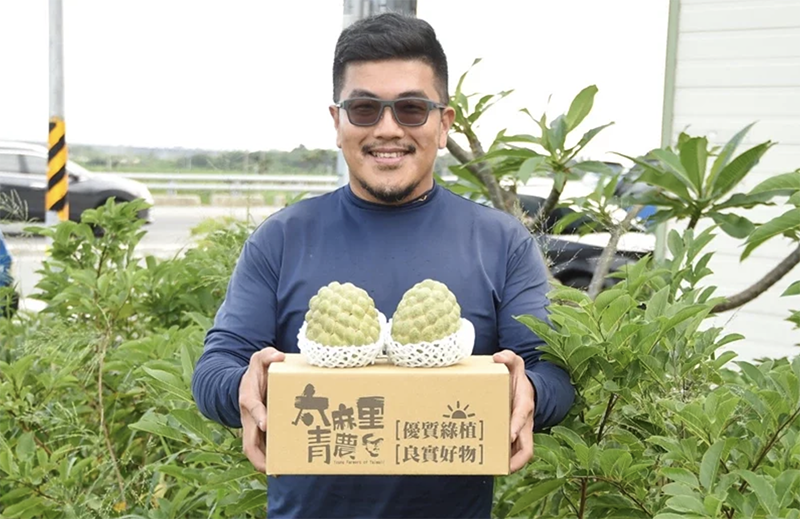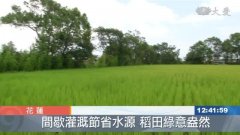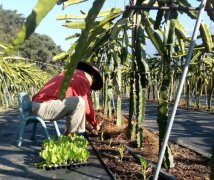Green Farmer Li Junyi Friendly Environment Grass Cultivation Successful Marketing of Organic Sakyamuni in Taitung
Li Junyi, an alumnus of Jingyi University, once served as a working student and director of the concert hosting company, returned to his hometown to grow Sakya in Taitung, transformed himself from an urban youth into a Chuang-footed farmer, and overcome the doubts around him, thus proving that the friendly environment of "grass cultivation" was correct. He also called on young farmers who were willing to work together to successfully market Taitung Sakya overseas and to practice its grass cultivation method, which was affirmed by the research on Taitung Agricultural improvement Farm. He, who graduated from the department of business administration, said that the origin of everything is "management" and put what he has learned into practice.
Li Junyi graduated from Jingyi University, and served as the president of the department society and student in his junior and senior year, respectively. After graduation, she continued to study for graduate school. The experience of organizing activities by the school community made him go from working student to concert co-ordinator, company supervisor, and even in charge of a company. It took him seven years.

In 2009, the Morakot typhoon (typhoon 88) hit the Sakyamuni Garden in his hometown of Taitung, which was the painstaking work of his grandfather and father all their lives. Nearly 2 hectares of 6 hectares of agricultural land had been lost and needed to be restored, while some of the land involved the acquisition of state-owned land. Li Junyi saw his responsibility in her father's tired eyes, but to change from an urban youth to a fruit farmer, he needed a little relief, so he traveled everywhere, looking back on the past and thinking about the future, a year of backpacker life, let him "return to zero."
In 2011, Li Junyi returned to her hometown of Taitung, where she started as her father's assistant and learned to grow Sakya. In the second year, his father gave him a piece of land to manage. He saw that his father and farmers used to use herbicides, but the herbicides cost money and labor, and the rate of return on investment was low, and the residual soil affected the ecology. In order to save labor and money, he began to choose "grass cultivation." because this will make the orchard overgrown with weeds, his father and the farmers around him are often questioned, but they inspire him to resist defeat and want to prove himself right.
Li Junyi began to do her homework, made reference to research and practices at home and abroad, insisted on not using herbicides, obtained production and marketing resume certification and organic cultivation, and achieved good results by participating in the evaluation of Sakya. And sold a good price of nearly 300 yuan per kilogram in the Taipei auction market to win recognition.
In view of the fact that Taiwan Sakya's strain and production technology are leading the world, Sakya's antioxidant effect is also loved by people in Singapore, Malaysia and other places, but the Taiwan market is limited. Through cooperation with traders, Sakya has been successfully exported to Hong Kong, Macao and Canada.
Li Junyi said that in recent years, people from Vietnam, Thailand, Malaysia and Taiwan have come to China to grow Sakyamuni, which has gradually lost their advantage. in order to find a way to get ahead of others, in addition to planting a good seed, it can be grown through safer planting methods such as non-toxic or organic. Grass cultivation is to build ecological diversity and allow ecological and natural balance; there are pests in orchards and natural enemies, and pests will naturally be wiped out without affecting the harvest.
His method was valued by the Taitung Agricultural improvement Farm, and verified by quantitative science, Li Junyi found it "very meaningful." he also used social media and e-commerce marketing through product differentiation, and at the same time called on like-minded partners to form a production and marketing class for young farmers, which was affirmed by the Council of Agriculture's top 10 production and marketing classes.
Li Junyi said that there have been some achievements in recent years, all of which originated from "management" and can be regarded as putting what they have learned into practice. In particular, when they studied marketing in college, teachers used case discussions to think about the reasons for the success and failure of individual cases and trained him to think. The experience of the community allowed him to learn how to do things well, and he encouraged his brothers and sisters to "it is really important to train their good thinking habits."
- Prev

The method of intermittent irrigation in agricultural experimental station has been successful in saving water and increasing yield of rice.
The intermittent irrigation method of planting rice in the agricultural experimental station has a serious water situation, and the rice farming industry, which relies heavily on water resources, is the first to suffer. Hualien organic small farmers use intermittent irrigation to make rice dry and dry alternately, saving 30% of cultivation water and increasing rice.
- Next

Take root in tribal culture and create a brand-new agricultural economy
In order to promote tribal organic agriculture, a "tribal e-purchase" platform was established to teach tribal farmers to promote seasonal agricultural marketing and support the operation of the sales platform. (Photo courtesy/corporate
Related
- A one-day flower show brings 130 million yuan in orders! Nanhai, this Phalaenopsis exhibition is amazing
- What do the flower language and meaning of Lutheran tree mean? Precautions for planting Lutheran tree
- Encounter Chaoshan Kongfu tea, not without this cup of Phoenix single clump
- The durian market in Vietnam and Thailand is flooded. The price of imported durian has plummeted by 30-40% in a month.
- Shanghai solved the problem of local vegetable supply by planting 80,000 mu of green leafy vegetables.
- Wageningen University has become the best agricultural university in the world for the seventh time in a row.
- The strongest export season of South African grapes is full of challenges, with exports to Russia falling sharply by 21%.
- Sri Lanka is on the verge of bankruptcy, "Tea for debt" Organic Agriculture Revolution aggravates the Food crisis?
- Turning waste into earthworm manure and worm manure into organic fertilizer-A new choice for auxiliary farming
- Organic rice growers shoulder the responsibility of nurturing agricultural talents! Yinchuan Sustainable Farm with Organic Life Camp

